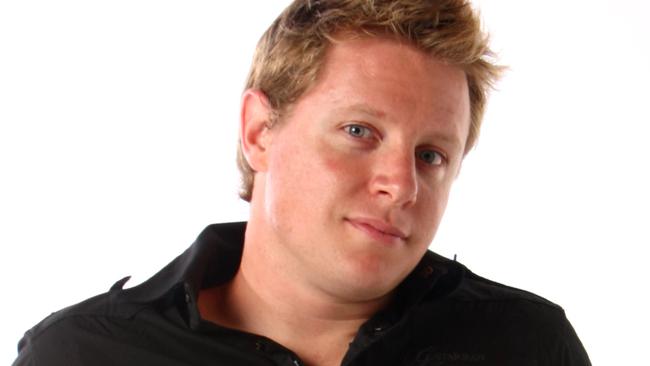Turn to professional counselling if your debts are starting to overwhelm you
A SELF-EMPLOYED plasterer in a financial fix needs financial counselling, and a reader’s credit card debt is wiped out by her tax return windfall.

Barefoot Investor
Don't miss out on the headlines from Barefoot Investor. Followed categories will be added to My News.
QUESTION MY son is a self-employed plasterer, and very good at his job. The problem is that he is useless at handling his money and, as a result, has found himself being threatened with repossession of his home due to defaulting on mortgage repayments. Along with this, he is in debt to the Tax Office to the tune of $30k and has no hope of repaying this sum. He has four children.
Norma
ANSWER YOUR son is on the road to bankruptcy. You know that. He knows that. It’s like watching a slow-motion car crash. But he hasn’t hit the wall (yet), so one way to slow things down is to get him to contact a community-based financial counsellor immediately (call 1800 007 007). They’ll negotiate with his creditors and talk to the bank’s hardship department.
But a financial counsellor can’t, and won’t, take over the wheel. If he doesn’t change his behaviour and take responsibility for his situation, the family heading for a financial write-off. These are deep and confronting issues that, after consulting a financial counsellor, are best tackled by the mother of his children in conjunction with a relationship counsellor.
RICH DAD, BANKRUPT DAD
Q I’M 31, a professional white-collar female. I recently received a tax return of $10,000. I’m renting, have a $12k balance-transfer, zero-interest credit card (due May 2015), an $8500 credit card (19 per cent interest) and $13k owing to my parents through a secondary credit card (19 per cent interest).
Robert Kiyosaki (Rich Dad, Poor Dad) says use your cash to create income-producing assets, so should I focus on paying off my debt, buying assets or a bit of both?
Jen
A HERE’S an investment opportunity that will make your “Rich Dad” salivate, one that will generate a 19 per cent return that’s completely tax-free and 100 per cent risk-free.
Ready? Pay off your credit cards. You’re $33,500 in the hole! Jen, you’re an “income-producing asset” yourself — for the bank. Now I’m not sure if Robert Kiyosaki would agree, but then again he plays a different game to me — he filed for bankruptcy in 2012.
THE GREAT DEBATE ON INSURANCE
Q MY husband and I are having a debate over income protection and life insurance. We’ve just bought our first home and we got married a year ago. I believe in having a healthy Mojo account and accessing life insurance through our superannuation. Why give our money to someone else for income protection when we could put it into shares or a high-interest account?
Camille
A YOU two sound like smart cookies — there are very few couples who debate the merits of insurance policies. Now I’m sure you wouldn’t drive your car if it wasn’t insured. So what’s the difference with your ability to earn an income?
The beancounters tell us that you’ve got a one in three chance of becoming disabled for more than three months before you reach retirement age. So I’d suggest that, as a bare minimum, you both have more than adequate insurance (total permanent disability, life, and income protection), especially if you’re starting a family. And you can do it cheaply through your super. It’s a no-brainer, so give your fund a call and get them to take you through your options.
TRIPLETS’ BRING SHARE OF CHANGE
Q MY wife and I are seven weeks away from introducing triplets to the world. We already have a four-year-old daughter, who is a hoot! I’m very interested in getting involved with shares, but I’m daunted by where to start. People who seem to know about shares make it sound so complicated that I’ve never been brave enough to look into it.
Peter
A IF you can handle four kids under the age of five, buying shares will be a walk in the park.
But with seven weeks to the big day, I’d suggest you look closely at your Mojo account and ensure you’re working towards stashing away three to six months of savings.
As far as learning about the share market, I’m going to send you a free subscription to my newsletter, Barefoot Blueprint, where you can learn by watching me invest $100,000 of my own dough.
WHAT TO DO WITH A LUMP SUM
Q BY the end of this year, my husband and I will have retired and moved to Melbourne into our newly built, fully owned home. We are selling our current home and should clear $500,000, which represents our “superannuation”. My question is, what should we do with this lump sum to maximise our retirement income?
Jackie
A GOOD work on downsizing your home and unlocking half a million bucks to fund your retirement. Your next step is to work out which structure is going to maximise your age pensions and minimise your tax (read: get as much into superannuation that you can). Super pensions will generally provide you with the best bang for your buck.
I like retirees to keep at least three to five years of living expenses in cash and term deposits, and invest the rest in shares such as the Australian Foundation Investment Company (AFIC) and Argo Investments, which pay fully franked dividends.
Having $500,000 in your kit will provide you with about $25,000 a year in income, along with about $24,000 in age pensions.
If you keep your spending to about $50,000 a year, your funds should outlast you!
Originally published as Turn to professional counselling if your debts are starting to overwhelm you


